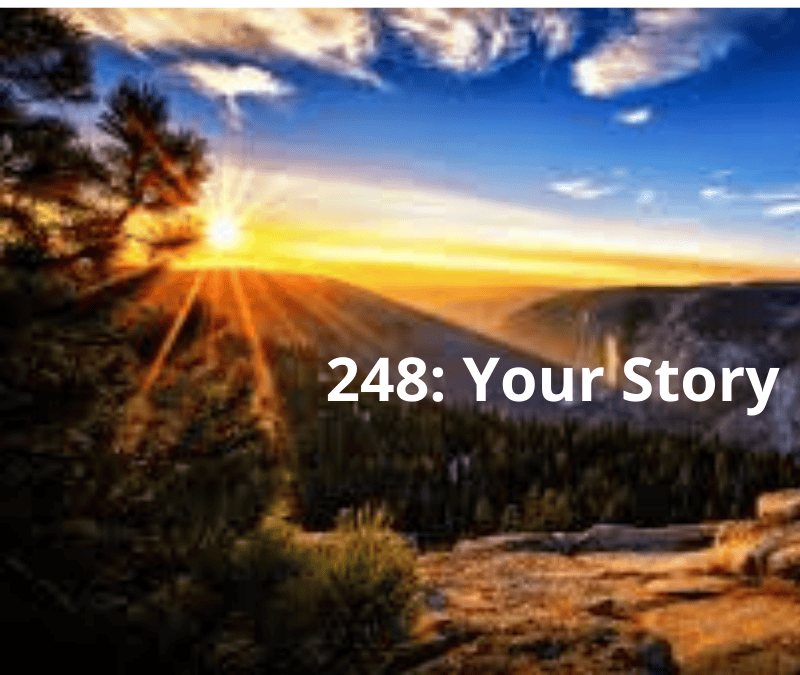
by Paul Churchill | Nov 18, 2019 | Podcast
Podcast: Play in new window | Download
Subscribe to the Recovery Elevator Podcast Apple Podcasts | | More
Patrick took his last drink on January 1, 2019. This is his story.
Update on the Alcohol is Sh!t book! The book is out! Pick up your paperback copy on Amazon here! You can get the Audible version here!
A new Café RE group will be launching January 1, 2020! Also, Recovery Elevator Meet-ups in Australia have been scheduled for December! Be sure to check the events calendar or the weekly email.
Paul is currently working on a meditation course, that he hopes to have out by early next year…warning, you may just might fall in love with yourself.
On today’s episode Paul talks about sharing and owning our story. This can be therapeutic, but also, if done too many times, dangerous. Why? Your story becomes your future. How do we stop this? We learn to protect us from our thoughts. When you take your energies and thoughts off your past addictions and traumas they can disappear. One way to do this is through meditation.
[11:15] Paul introduces Patrick.
Patrick was born and raised in Boston. He is a high school teacher and teaches religion and history. He is married and has a 6-year-old daughter. For fun Patrick likes long distance hiking, car camping and road trips.
[14:20] Give us a background on your drinking.
Patrick says he accepted that he was an alcoholic at the age of 18 when he entered the seminary. He got a fake ID at the age of 16 and was going into liquor stores at 16 and buying his own liquor. At the age of 18 Patrick started going to AA meetings. Patrick started drinking again, about the age of 29, and only beer.
The next couple of years the beer became scotch, then vodka. After about 2 weeks of consuming vodka for 2 weeks Patrick contemplated suicide. When his baby was only 2 weeks old Patrick went to the hospital. He is 45 years old. He is checked into the hospital for 9 days to detox. A year later…picking up his 1-year chip at an AA meeting, he had already had a couple drinks before the meeting.
[19:35] What happened next?
Patrick and his wife decided they were going to have a baby. Wasn’t what he planned…but he started hitting the bottle hard. He started hiding bottles all over. Patrick wrapped bottles in his hospital bag to get through the birth of his child.
[33:50] What was different this time?
Patrick says he reached a turning point, he could stay on the couch drinking scotch and vodka and have his wife leave him, or live the life he knew he wanted.
[39:45] How’d you do it??
Like a bird…worry about tomorrow, tomorrow. Be fully present in every moment.
[43:50] What are some of the lessons you have learned about yourself along the way?
Patrick says he is discovering who he’s always been.
[45:30] Were there cravings?
Patrick says he has had cravings in the past but not the past 9 months.
[47:05] How has your life changed without alcohol?
Patrick says he is fully present with his wife and with his daughter…and fully present with himself.
[47:50] Rapid Fire Round
- What’s a lightbulb moment you’ve had on this journey?
Honesty. I lied mostly to myself, and then when I stopped it got better.
- What is a gift that sobriety has given you?
Camping on the river with my daughter.
- What is your favorite alcohol-free drink?
Polar Mango Cherry Bliss.
- What are some of your favorite resources on this journey?
Podcasts…Recovery Elevator, This Naked Mind, Recovery Revolution, I go to AA and volunteer at a detox center.
- What is on your bucket list in an alcohol-free life?
A cross country trip with my 6-year-old.
- And what parting piece of guidance can you give to listeners?
Brutal honesty with self.
You might need to ditch the booze if…
You shoot vodka nips on your way to your 1-year AA anniversary.
Upcoming retreats:
Asia Adventure – January 20-31, 2020
You can find more information about this event here
Resources mentioned in this episode:
Connect with Cafe RE– Use the promo code OPPORTUNITY for your first month free
Sobriety Tracker iTunes
Sobriety Tracker Android
Sober Selfies! – Send your Sober Selfie and your Success Story to info@recoveryelevator.com
“Recovery Elevator – It All Starts From the Inside Out. We can do this.”
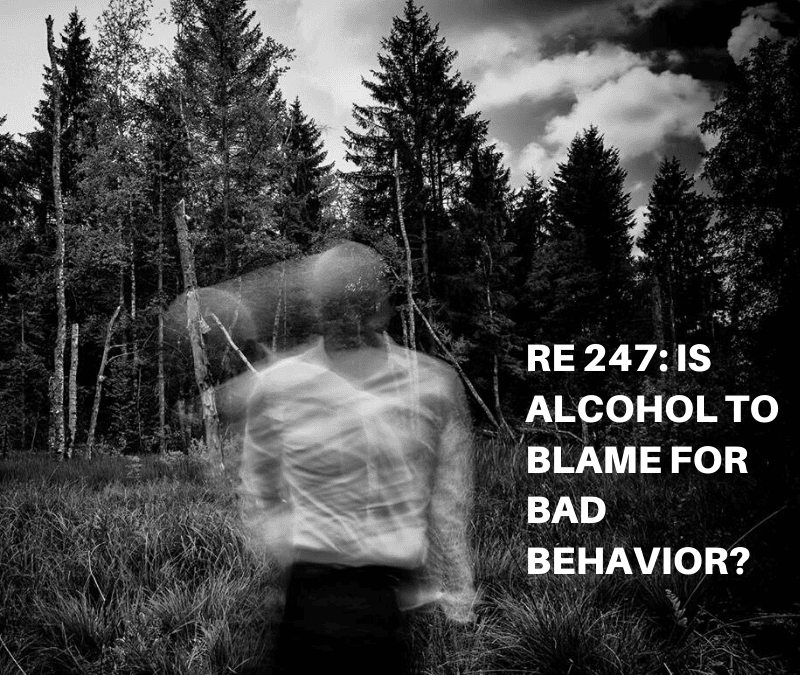
by Paul Churchill | Nov 11, 2019 | Podcast
Podcast: Play in new window | Download
Subscribe to the Recovery Elevator Podcast Apple Podcasts | | More
Jody took her last drink on October 20, 2015. This is her story.
Update on the Alcohol is Sh!t book! The book is out! Pick up your paperback copy on Amazon here! You can get the Audible version here!
On today’s episode Paul shares with the listeners the many (12) steps, and team members, it takes to put a podcast episode together. And listeners…you are part of the team!
Paul also covers an article he came across that talks about the relationship between alcohol and antisocial behavior is well documented. You can find a link to the article here.
The question is, can we blame our bad behavior on the alcohol? The study in this article says no. Alcohol, according to the study, does not change your personality. Drunken you has the same moral compass as sober you.
[10:20] Paul introduces Jody.
Jody is 30 years old and lives in Orlando, Florida. She is a flight attendant and a mindset and transformation coach. Jody is not married and does not have any kids, yet. She loves to travel, read, cook, and do yoga.
[13:25] Give us a background on your drinking.
Jody was introduced to alcohol her freshman year of college. She found that alcohol helped her social anxiety. After graduating from college, she thought she would leave the binge drinking behind. That didn’t happen. She continued to drink and smoke and have blackouts, and this frustrated Jody.
[17:15] Can you dive deeper into your frustration?
She moved back home and that addiction followed her. It helped her find people that made her feel normal. Once she decided she wanted to become a flight attendant she knew she would have to stop smoking because they drug test you. So, she did, and she got the job. During this time Jody started drinking more and drinking alone.
[22:40] Get us up to speed, did you try to moderate, was there a rock bottom moment?
When she started drinking alone, she tried to make rules and moderate, always breaking the rules. The voice inside got really loud and she started to believe that the world would be a better place without her. She felt her problem was too big. This is when she started to listen to the Recovery Elevator podcast. She got a new therapist and at the age of 27 she identified herself as an alcoholic, a word she does not use anymore.
[24:30] Tell me your thinking on not using the word alcoholic anymore?
Jody feels very passionate about this…this feels it’s a very dangerous and harmful term to use.
[27:40] Bring us up to October 20, 2015.
Jody says she was just sick and tired or being sick and tired.
[28:20] What happened after that?
Jody says she’s pretty much did it on her own. She took it one day at a time. Jody structured her days and it helped her stay sober and grounded.
[29:15] In the first couple months did you experience cravings, and how’d you get past them?
Jody says she made a really firm decision that she didn’t want to drink and she didn’t experience cravings.
[30:20] Share with us your biggest life lessons during the last 4 years.
Jody’s first year was dedicated to loving herself. Year 2, 3, & 4 was all about mindset. She changed the way she viewed what had happened and how alcohol was viewed in out society. This ultimately made her leave AA.
[33:40] Tell us about being a Mindset and Transformation Coach.
About a year ago Jody decided she wanted to do something to help others that want to be alcohol free. There is nothing to be ashamed of.
[38:25] You are loud and proud on social media, what has been the response?
Jody says her posts are never about her, they are about the people that need to hear it. About sharing her story for those that need to hear that message.
[43:30] Where can people get in contact with you?
You can find Jody on Instagram here.
[44:00] Rapid Fire Round
- What’s a lightbulb moment you’ve had on this journey?
Realizing I am not my addiction, I am not what I have experienced.
- What is a gift that sobriety has given you?
Being fully present at all times.
- What is your favorite alcohol-free drink?
Recently I had a spicy AF jalapeno margherita.
- What are some of your favorite resources on this journey?
Annie Grace’s This Naked Mind, Alan Carr’s The Easy Way to Quit Drinking for Women, this podcast, and anyone that is loud and proud on Instagram.
- What is on your bucket list in an alcohol-free life?
I want to help as many people as I can through coaching.
- And what parting piece of guidance can you give to listeners?
Be open, and committed. Stay curious.
You might need to ditch the booze if…
If you use the layering technique in your recycling bin.
Upcoming retreats:
Asia Adventure – January 20-31, 2020
You can find more information about this event here
Resources mentioned in this episode:
Connect with Jody via instagram @jodyventura
You Can’t Blame Alcohol for Acting Like an A-hole Anymore, Say Scientists
https://www.inverse.com/article/58809-alcohol-study-does-it-change-your-personality
Connect with Cafe RE– Use the promo code OPPORTUNITY for your first month free
Sobriety Tracker iTunes
Sobriety Tracker Android
Sober Selfies! – Send your Sober Selfie and your Success Story to info@recoveryelevator.com
“Recovery Elevator – It All Starts From the Inside Out. We can do this.”
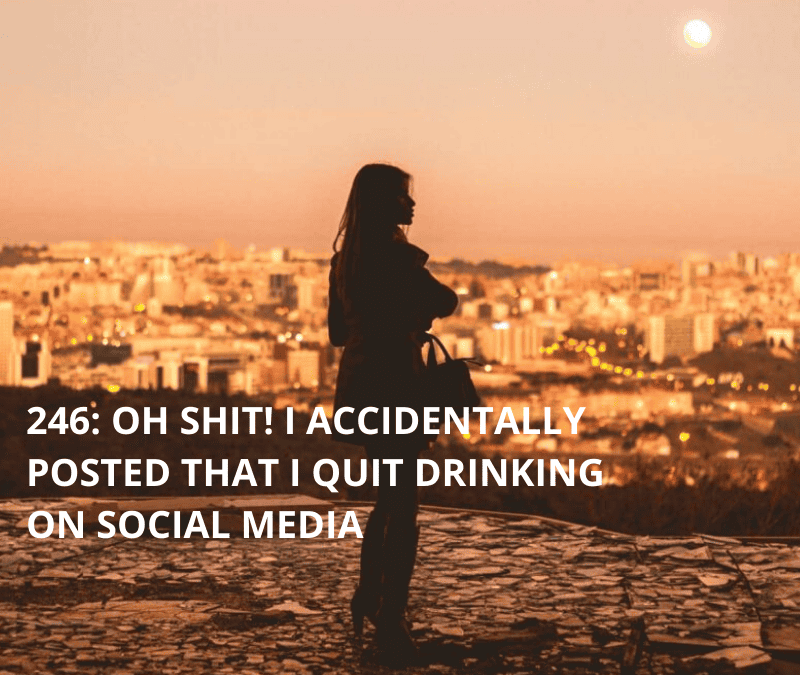
by Paul Churchill | Nov 4, 2019 | Podcast
Podcast: Play in new window | Download
Subscribe to the Recovery Elevator Podcast Apple Podcasts | | More
Wendall took his last drink on June 13, 2019. This is his story.
Update on the Alcohol is Sh!t book! The book is out! Pick up your paperback copy on Amazon here! You can get the Audible version here!
On today’s episode Paul talks about the 5 responses you get when you tell people you don’t drink. He also discusses what you do when you accidently post on social media that you no longer drink.
The 5 responses:
70% of the time you hear total support, “Wow that’s so cool, because I want you to be the best version of you.”
20% of the time the response will be that the person you told has a family member or close friend that has also quit drinking alcohol.
5% of the time you will get bombarded with questions as to why you don’t drink.
4% of the time they will be supportive but will no longer be a part of your life, drinking was the reason they were.
1% of the time they will not be supportive of your decision to ditch the booze.
[22:30] Paul introduces Wendall.
Wendall lives in Toronto Ontario, Canada. He is 42 years old and is a director, producer, and cinematographer of documentaries. Wendall is married and has a 6-year-old son. For fun Wendall enjoys getting out in nature.
[23:35] Give us a background on your drinking.
Wendall says he didn’t really start drinking until he was in university, about 1996. Up until his late 30’s he was mostly a social drinker. Things shifted then. He was working a lot, traveling a lot, was stressed. Drinking became habitual at this time; it was both a reward and a stress reliever. With added responsibilities, came anxiety. Drinking then became a coping mechanism. In 2018 Wendall realized that all the rules of moderation he had tried to put in place weren’t working.
About 6 months ago binge drinking really started to rear its ugly head. He finally decided he couldn’t drink anymore.
[34:00] How did it feel after you set the bottle down?
It felt like every new beginning comes from some others beginnings end.
[35:25] What was it like living life without alcohol the first few days and weeks?
Because his drinking was habitual Wendall realized he would have to create new habits. He started listening to recovery podcasts. His first 30 days was done pretty much in solitude. Instead of having his normal evening drinks he would listen to a podcast and read a few chapters.
[39:20] How long did it take for the new habits to take hold?
Wendall says it only took about 14 days because he wanted it so badly.
[43:00] Have you told your film crew or others in your industry?
Wendall has told his film crew as the situation came up, he simply tells them he just doesn’t drink.
[48:24] This project, Sober House, showed up on your plate when you were also exploring a life without alcohol?
Wendall says it showed up in and around the time he was having some internal conflict with his drinking. Listening to the kids in this film talk about how much alcohol has impacted their lives was like the hammer hitting the nail square on the head.
[51:52] How can the listeners find out more information about this project?
They can go to www.soberhouse.ca , they can follow us on Instagram and Twitter at soberhousefilm.
[53:27] Rapid Fire Round
- What’s a lightbulb moment you’ve had on this journey?
Moments with my son are way better without a hangover.
- What is a memorable moment that a life without alcohol has given you?
While filming in the Yukon and coming out of the tent in the morning, mist rising off the lake, the sun streaming down and the mountain revealing itself.
- What is your favorite alcohol-free drink?
Does ice cream count?
- What are some of your favorite resources on this journey?
I really dialed back into my love of reading. The Recovery Elevator podcast, I binged that pretty hard the first 30 days, same with Recovery Happy Hour.
- What is on your bucket list in an alcohol-free life?
To really have great experiences with my family.
- And what parting piece of guidance can you give to listeners?
I have 2, the first one is to listen to your body. The second one is listen to your body.
- You might need to ditch the booze if…
If you know where every liquor store is in every major airport in your country.
Upcoming retreats:
Asia Adventure – January 20-31, 2020
You can find more information about this event here
Resources mentioned in this episode:
Sober House film
https://www.youtube.com/watch?v=oERDuy1WxgU&t=72s
Honey
This episode is brought to you by the smart shopping assistant Honey. Get Honey for free at
www.joinhoney.com/elevator. Honey, the smart shopping assistant that saves you time and money when you’re shopping online.
Connect with Cafe RE– Use the promo code OPPORTUNITY for your first month free
Sobriety Tracker iTunes
Sobriety Tracker Android
Sober Selfies! – Send your Sober Selfie and your Success Story to info@recoveryelevator.com
“Recovery Elevator – It All Starts From the Inside Out. We can do this.”
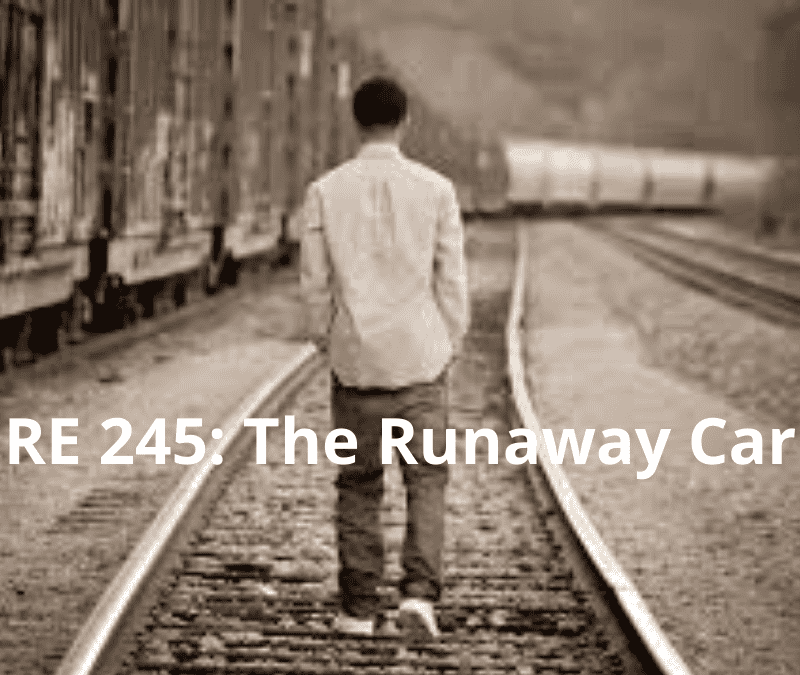
by Paul Churchill | Oct 28, 2019 | Podcast
Podcast: Play in new window | Download
Subscribe to the Recovery Elevator Podcast Apple Podcasts | | More
Jay took his last drink on Decemeber 26, 2018. This is his story.
Update on the Alcohol is Sh!t book! The book is out! Pick up your paperback copy on Amazon here! You can get the Audible version here!
On today’s episode Paul talks about a response to a post on Reddit. Not knowing exactly what the initial post said, Paul guesses it was something about the poster wanting to ditch the booze, but not being able to.
The response…” You know what, you‘re heading in the right direction to win. You want to stop. You literally cannot win without that. I’ve lost friends to booze and none of them wanted to stop. Wanting to stop provides friction. It adds resistance to drinking, which has the effect of reducing your intake. Maybe you start an hour later in the day. Maybe you drink one glass less. That helps. It makes it easier to apply more friction in the future.”
The intention to stop is the most important thing.
[9:44] Paul introduces Jay.
Jay is 37 years old and grew up in upstate New York. He has lived in North Carolina for the last 9 years. He has a full-time sales job and a full time real-estate side hustle. He enjoys mountain biking and golf. He is married.
[11:05] Give us a background on your drinking.
In high school Jay had fun after the Friday night football games. In college Jay partied on Friday and Saturday nights. He was a weekend warrior during his twenties. He relocated in 2010 and started experiencing problems that he couldn’t solve. This is when alcohol really made it’s appearance.
[14:40] Do you feel your sports background backfired when it came to quitting drinking?
Yes. Jay says he ran into a set of problems that he could not out hustle, could not out grind.
[15:30] Early thirties and anxiety is creeping up, take it from there.
Rather than talking about it with the people he loved he internalized it. 2016-2018 Jay says he was a pressure cooker. He was never saying no, never setting boundaries.
[17:50] Did you ever try to moderate?
Around 2016 Jay recognized that alcohol was getting out of control. He would go 30-40 days AF a few times a year. After trying to fight a stranger at a party Jay knew the gig was up. He later had a conversation with his best friend and told him that he thought he had a drinking problem. Jay says that in that moment he felt a weight off his shoulders.
[27:24] What did you find when you went internal?
Jay learned that he’s a people pleaser, that he didn’t know what boundaries were, and having his emotional bids minimized really hurt.
[32:20] How’d you do it?
Jay says ever since the moment he told his friend that he has a drinking problem he has not experienced cravings. He has not attended AA, and does not like the term ‘alcoholic’.
[33:35] What’s been the hardest thing you’ve gone through in sobriety?
Jay says he’s gone through some events where there has been a lot of drinking and when people asked him why he wasn’t drinking his reply was, “I have goals so big that I and to give up some things.”
[37:15] What advice can you give to guys out there about emotions?
There is no courage without vulnerability.
[41:05] Rapid Fire Round
- What’s a lightbulb moment you’ve had on this journey?
Finally digging down to what was causing the sadness and now having an awareness of that.
- What is a memorable moment that a life without alcohol has given you?
Those moments where this incredible peace overcomes you.
- What is your favorite alcohol-free drink?
I drink coffee and water.
- What are some of your favorite resources on this journey?
Writing in my journal every morning has been a tremendous help.
- What is on your bucket list in an alcohol-free life?
Fly to California and drive the Pacific Coast Highway from end to end.
- And what parting piece of guidance can you give to listeners?
Have the courage to be honest with yourself and with the people closest to you.
- You might need to ditch the booze if…
If you self-impose a rule of only two 24 oz. Twisted Teas and then switch to Miller Lights because you’re worried about cavities.
Upcoming retreats:
Asia Adventure – January 20-31, 2020
You can find more information about this event here
Resources mentioned in this episode:
Connect with Cafe RE– Use the promo code OPPORTUNITY for your first month free
Sobriety Tracker iTunes
Sobriety Tracker Android
Sober Selfies! – Send your Sober Selfie and your Success Story to info@recoveryelevator.com
“Recovery Elevator – It All Starts From the Inside Out. We can do this.”
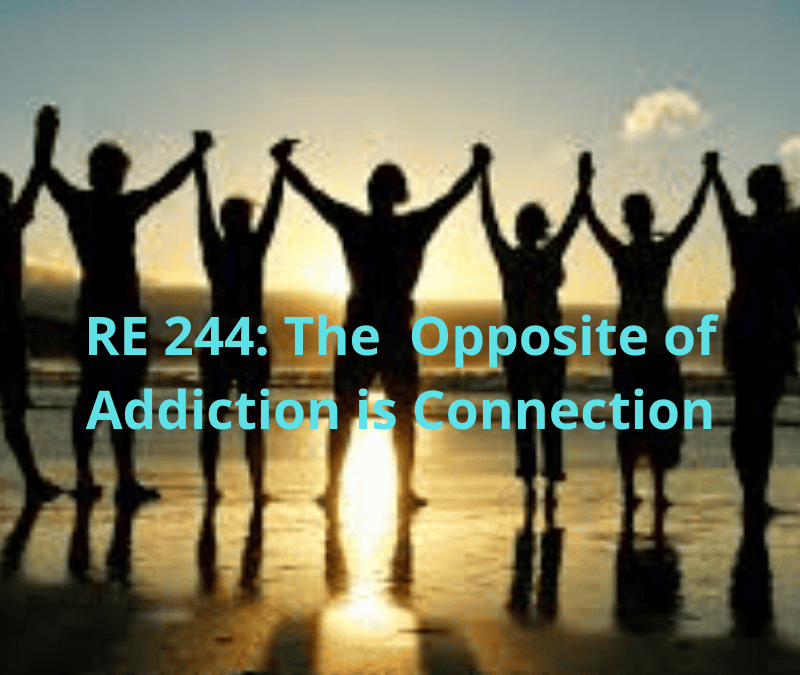
by Paul Churchill | Oct 21, 2019 | Podcast
Podcast: Play in new window | Download
Subscribe to the Recovery Elevator Podcast Apple Podcasts | | More
Gracie took her last drink on September 29, 2018. This is her story.
Update on the Alcohol is Sh!t book! The book is out! Pick up your paperback copy on Amazon here! You can get the Audible version here!
On today’s episode Paul talks about connection. Human connection is an innate need to create a social bond with others.
For those that found a temporary connection with alcohol and are now trying to ditch the booze now find them facing disconnection head on. You are listening to the inner voice that isn’t craving alcohol, but is craving connection.
How to connect…ask for connection every single morning. Aim for 50% to be external connections, and the other 50% internal. If a connection is built within, we can go through difficult times in life and still feel that warmth. If you address the internal connection the external connection solves itself.
SHOW NOTES
[14:25] Paul introduces Gracie.
Gracie grew up in the Midwest and is currently living in Chicago. She is 32 years old and is a nurse. Gracie loves camping, backpacking, traveling abroad doing medical trips, and has recently gotten into rock and minerals. She lives with her boyfriend, who is 4 years sober.
[22:55] Give us a background on your drinking.
Gracie didn’t start drinking until she was 19 years old and off at college. Her drinking didn’t get bad until age 21/22 when she was in the Peace Corp and was partying hard with the other volunteers. In her mid-twenties she was binge drinking on the weekends and coming home and drinking by herself. She was experiencing a lot of loneliness and anxiety at the time, so would drink. By Gracie’s late 20s she was drinking most nights and having blackouts.
Gracie says she had a lot of ‘soft bottoms’ and it wasn’t until she was about 28 years old that it occurred to her that she needed to stop drinking. It was at this time that Gracie was starting to read self-help books and was interested in spiritual growth. As she started getting into medication retreats and plant medicine, she says she kept getting the message, from her heart, that her drinking was holding her back.
[37:45] How did it feel when you started to feel your feelings?
Gracie says she was afraid in the beginning, that she was even afraid to feel a feeling coming on. She says meditation helped her let the feelings come and pass. Gracie says it took months for her to learn to trust that a feeling wouldn’t swallow her whole.
[41:45] Was there a rock bottom before you quit drinking?
Gracie says there was a lot of heartbreaking moments. She was functioning but her relationships were suffering. She says there was this constant low-grade feeling of disfunction.
[44:50] Share with us how you did it.
Podcasts and books were a big part of her getting sober. For maintenance she uses her sobriety tracker on her phone. She is running a lot and taking her health more seriously.
[46:55] Do you have an in-person community that you meet up with?
Gracie says she does not, but that she thinks that may be what is next. Meetings have never been part of her journey but she says that may be her next step.
[48:12] What was the response when you posted on social media?
Gracie says the response was so supportive and it proved to be a very good thing for her.
[50:25] Rapid Fire Round
- What’s a lightbulb moment you’ve had on this journey?
I guess when I first heard, “stop obsessing about the word alcoholic and just look at what drinking is doing in your life.”.
- What is a gift sobriety has given you?
So much energy.
- What is your favorite alcohol-free drink?
I love gingerale and I love this Jamaican drink called Ting.
- What is on your bucket list in an alcohol-free life?
I’m starting some trainings and certifications to become a flight nurse.
- And what parting piece of guidance can you give to listeners?
Feel your feelings and love yourself. Make sobriety the most important thing in your life.
- You might have a drinking problem if…
You are an avid camper and want to achieve the perfect amount of hydration with drunkenness so you mix vodka with flavored Smart Water and just end up making a total ass of yourself.
Upcoming retreats:
Asia Adventure – January 20-31, 2020
You can find more information about this event here
Resources mentioned in this episode:
Connect with Cafe RE– Use the promo code OPPORTUNITY for your first month free
Sobriety Tracker iTunes
Sobriety Tracker Android
Sober Selfies! – Send your Sober Selfie and your Success Story to info@recoveryelevator.com
“Recovery Elevator – We took the elevator down; we have to take the stairs back up.
We can do this.”







